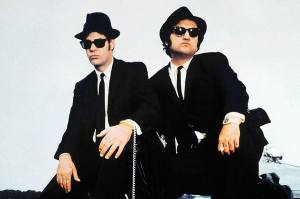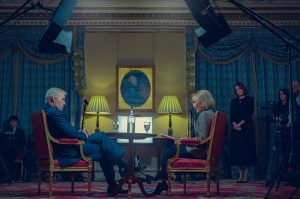The Florida Project
is a drama set in one of those cheap American motels occupied by poor people who would otherwise be homeless. It’s sad but not depressing, bleak but also joyful, and features one of the best and truest child performances you will ever likely see. Also, it is captivating without ever being condescending — I think. It is always so hard to know, but if you get too hung up on that, cinema will never be allowed to say that poverty exists, or deal with stories that don’t regularly get told, and that’s the end of my lecture for this week, you will be delighted to hear.
The movie is written and directed by Sean Baker, whose previous film, Tangerine, about a transgender sex worker, was shot on an adapted iPhone 5 and won many awards. Here, the setting is Orlando and the cheap motel is the Magic Castle, which is painted a loud, lurid mauve and is situated close to Disneyworld. (The American Dream, and those excluded from it? Just trying out a few thoughts here.)
Our main characters are six-year-old Moonee (the terrifyingly gifted Brooklynn Prince, who never hits a single false note) and her mother Halley, as played by Bria Vinaite, who has a touch of Courtney Love about her and was discovered on Instagram by Baker as he was doing his research. Both Prince and Vinaite are so unselfconscious it’s as if they are doing what they would be doing anyway, but it just so happens they are being filmed. The only recognisable face is Willem Dafoe, who plays Bobby, the kindly motel manager who keeps a paternalistic eye on all the residents. Initially, it is quite creepy seeing Dafoe not being creepy but you do get your eye in after a bit.

At this point in the review I’d normally say this happens, then that happens, then this happens, and then we’d all go home, but The Florida Project isn’t like that. With most films you know what you are getting within the first ten minutes — oh, it’s this film; OK — but here there are no plot points as such and we never quite know where we’re headed, which gives it the thrum of real life. It is episodic, and told from Moonee’s point of view — the camera is often positioned at her height — as she runs wild and unsupervised with her friends. They have spitting contests, blag ice-creams from tourists, play with fire — Christ, Moonee, be careful! — and stir up mischief left, right and centre, but never with malice. They don’t have iPads. They must make their own fun, so they do. They’re never going to Disneyland — too pricey — so they use their imaginations to create their own theme park. ‘Ghost poo!’ exclaims Moonee, on entering an abandoned condo which, in its way, serves as a Haunted Mansion. Childhood wonder, we’re being told, can transform a bad situation into something joyous. But it can’t correct it, alas.
On to Halley. Halley is tattooed and pierced and more like Moonee’s co-conspirator than a parent. She is reckless, rebellious, and spends money the minute she makes it. She survives by hawking perfume and scamming hotel breakfasts, and turns tricks while Moonee is in the bath, shampooing the hair of her My Little Pony. It looks bad on paper, admittedly. But this is not a finger-wagging film, and we know that Halley loves Moonee devotedly, and fiercely, if chaotically. The film doesn’t say if Moonee would be better off staying with her mother or not staying with her mother. It just presents their lives as is.
For the kids, it’s an adventure, but we understand the dark backdrop: the lack of opportunities, the fact that being poor makes you poorer ($38 a night for a shitty room, but what to do, if you have nowhere else to go?), the paedophile found hanging round the playground who has to be seen off by Bobby, and the authorities circling. As the film grows darker, the sherbet colours fade, until it concludes with an ending that has divided audiences, who either get it or don’t. I would say only this: we are in Moonee’s headspace, remember. It is her imagination that is key.
The film never sanctifies or demonises, and is absorbing throughout. Alternatively, though, you could just go see Paddington 2, where the Browns live in a lovely big Notting Hill house. If, that is, you feel safer that way.


















